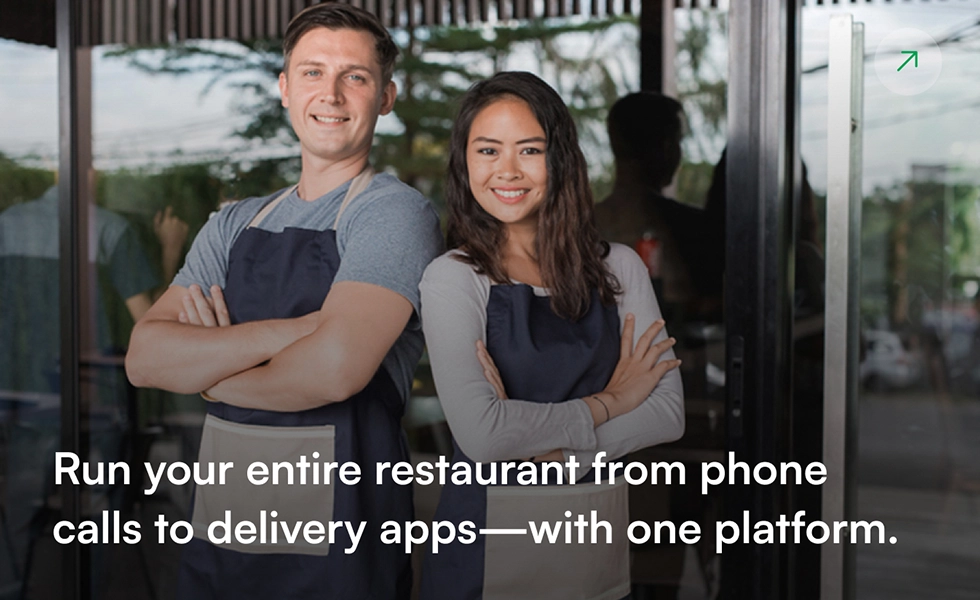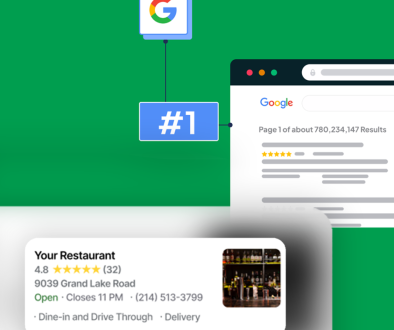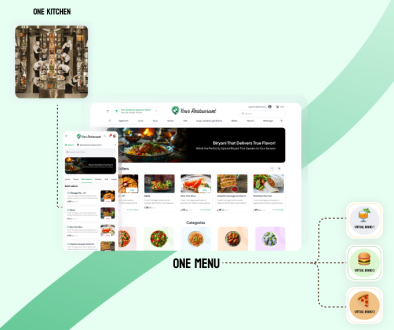AI for Restaurants: How Artificial Intelligence Is Reshaping the Food Industry

Artificial intelligence is transforming how restaurants operate, serve, and succeed. From personalized customer experiences to back-end optimization, ai for restaurants is no longer a futuristic idea—it’s a practical, results-driven solution. Whether it’s automating phone calls, managing inventory, or creating tailored marketing campaigns, restaurants are turning to AI to improve efficiency, drive revenue, and stay competitive. This evolution is reshaping not just how food is served, but how entire restaurant operations are managed.
What is Artificial Intelligence and Why It Matters for Restaurants Today
When most people think of AI, images of robot chefs or futuristic kitchens often come to mind. But in reality, AI in restaurants is far more practical and less dramatic. It’s not about machines taking over the kitchen or making human staff obsolete. Instead, it’s about using smart systems that help automate routine tasks and assist teams in working more efficiently.
Artificial intelligence refers to technology designed by humans to simulate human-like responses and actions. It allows machines and software to perform tasks that typically require human intelligence—like responding to voice commands, analyzing data, or recognizing patterns. Unlike a person, AI doesn’t have feelings or intuition, but it can process large amounts of data quickly and make decisions based on that information. Tools like Siri or Alexa are simple examples—they follow commands and answer questions.
Taking it a step further, we have machine learning—a more advanced form of AI. Machine learning allows systems to learn from past data and behavior to make better decisions over time. For example, platforms like Netflix or Spotify analyze what users have previously enjoyed to suggest new content. In a restaurant, machine learning could be used to forecast sales, adjust menu offerings based on trends, or even personalize customer experiences based on order history.
This leads to a key concept often discussed in the context of ai in restaurants: machine learning.
Machine learning takes AI a step further. It allows systems not just to receive information, but also to learn from it. Using complex algorithms, machine learning enables computers to identify patterns, adapt, and make predictions based on historical data. You’ve seen this with platforms like Netflix or Spotify that recommend content based on your previous behavior. In restaurants, this means being able to anticipate customer preferences, optimize staff schedules, and even adjust menus based on trending tastes or seasonality.
Is AI in Restaurants Really Necessary? Discover Why It Matters
Absolutely. As customer expectations evolve and labor challenges increase, AI offers scalable solutions for both small and enterprise-level restaurants. According to Deloitte, over 80% of restaurant executives plan to increase AI investments to improve customer experience, staffing, and inventory management. In a competitive landscape, leveraging ai in restaurants is not just beneficial—it’s essential for survival and growth.
Top Benefits of Using AI in the Restaurant Industry
- Improved Customer Experience: Personalization, faster service, and 24/7 accessibility through AI-powered tools
- Operational Efficiency: AI automates manual processes, reducing errors and saving time
- Smart Inventory Management: Reduces waste and ensures stock availability
- Data-Driven Decisions: Access to real-time analytics and predictions
- Increased Revenue: Through better targeting and automation of marketing efforts
AI in Restaurants Is More Common Than Ever
The adoption of AI in the restaurant industry has grown exponentially. A significant number of quick-service and casual dining restaurants now use AI daily for everything from order-taking to back-office tasks. This includes tools for ai dining, customer feedback, kitchen optimization, and marketing automation.
How AI Is Enhancing Front-of-House Restaurant Experiences
AI phone answering
AI phone systems allow restaurants to capture revenue around the clock. These ai phone answering system for restaurants can handle common customer queries, direct calls, and promote online ordering or reservations—reducing missed opportunities and staff load.
Voice ordering
Voice AI is being integrated into drive-thrus and mobile apps, allowing customers to place orders seamlessly. This improves speed, accuracy, and customer satisfaction, especially in ai for quick service restaurants.
Self-serve options
AI-enabled kiosks and mobile ordering apps let customers place orders without staff involvement, increasing order accuracy and reducing wait times.
Kiosks that personalize customer experiences
These smart kiosks use customer data and preferences to suggest items, upsell, and offer personalized deals—enhancing engagement and boosting average order value.
AI Innovations Powering Back-of-House Efficiency
Integrated Inventory and Purchasing with AI Tools
AI solutions integrate with POS systems to track usage trends, forecast demand, and automate reordering. This purchasing service for restaurants reduces waste and ensures timely stock replenishment.
Smarter Staffing and Scheduling with Restaurant AI Tools
AI tools analyze historical sales and employee performance to forecast busy times and assign optimal staffing levels, improving efficiency and labor cost management.
Data-Based Insights to Predict Trends in Restaurants
With AI, restaurants can track customer behavior, menu performance, and seasonal trends—transforming raw data into actionable insights. This helps refine operations, marketing, and menu planning.
Automated Marketing and Remarketing Tools for Restaurants
AI-driven platforms auto-generate marketing campaigns based on customer actions. Restaurants can send targeted promotions, loyalty offers, and personalized messages to increase repeat business.
AI Content Creation Tools for Smarter Restaurant Marketing
Using ai restaurant software, restaurants can generate content like social media posts, email newsletters, and blog articles. This saves time and ensures consistent brand messaging.
AI in Restaurants: Here to Stay and Growing Fast
As we move into 2025, ai in restaurant industry 2025 article projections suggest even wider adoption of AI technologies. With benefits like cost savings, revenue growth, and better guest experiences, AI is firmly rooted in the future of dining. From solutions for small restaurants to large chains, artificial intelligence in the food industry is more accessible and impactful than ever.



